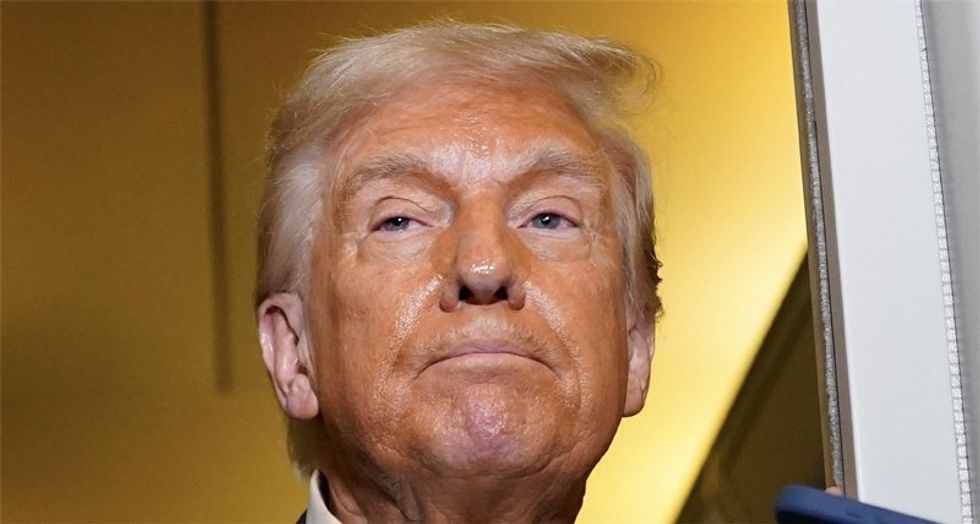

President Donald Trump has reportedly backed down somewhat on his populist message as Wall Street stakeholders have expressed concerns about his tariffs.
The president has toned down his hostile rhetoric toward China and Federal Reserve chair Jerome Powell since the stock market plunged again Monday and business leaders warned that his trade levies will clobber small businesses, and CEOs from leading retailers Walmart, Target and Home Depot also met Trump at the White House this week to express concerns about his policies, reported Politico.
“Their concerns about supply chains echoed private pleas from some wealthy donors who have reached out to senior aides and, in some cases, to Trump directly, according to three people close to the administration,” the website reported.
ALSO READ: ‘Dictatorship, not a town hall’: Families ‘distraught’ as MTG disruptors tased and jailed
Treasury secretary Scott Bessent helped persuade Trump to dial back his sweeping tariffs earlier this month, and a White House ally said “he sends a far more rational message” to stakeholders.
“Wall Street is not our audience, the rest of the country is our audience,” Bessent has told the president, according to the White House ally. “But Wall Street, through other means beyond the market, can impact Main Street. If they have a negative reaction and that leads to corporations cutting back, then you will feel the pain on Main Street. We don’t need to placate Wall Street but we need to communicate.”
Trump has tried to give the impression that he’s actively negotiating with China on their reciprocal tariffs, which Bessent denied in a speech earlier this week, but the ally predicted the president might make the first move to open the talks.
“Sometimes that’s how Trump works: make the problem worse before you make it better,” said the White House ally. “There’s a world in which Trump picks up the phone first.”
The White House is aware that polling shows voters are disappointed with Trump’s handling of the economy, with the lowest support on that issue in his political career, but a GOP operative said they’re counting on a rebound before the 2026 midterm elections.
“They know there’s some angst out there, but they also know a majority of the voters are actually giving him the benefit of the doubt,” the operative said. “If we go to the voters at the midterms and the markets are down 20 percent, we’re probably not going to have a good night. But they think at the end of the day, markets are going to come back.”
A GOP pollster told Politico that his firm’s data shows Republicans still outperform Democrats on the tariff issue, despite the stock market sell-offs.
“That tells us voters aren’t rejecting the idea of tariffs; they’re demanding a clear strategy,” said pollster Chris Wilson, CEO of Eyes Over. “When Republicans talk about tariffs as leverage to bring manufacturing home, or as part of a broader ‘America First’ trade strategy, sentiment trends positive — especially in the Rust Belt and swing states.”
Republicans are also counting on Trump’s base remaining loyal to him and rejecting negative media reports about the economy.
“We’re no longer a country that’s going to listen to some quote-unquote respected economist sitting in some studio in Manhattan telling people what to think,” said GOP pollster Adam Geller. “People are getting their information from other sources — whatever they may be, podcasts, social media, what have you — and they’re making a determination that this guy’s fighting for manufacturing, fighting for jobs, fighting for fair trade deals.”